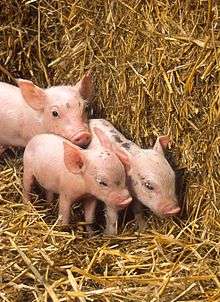Definify.com
Webster 1913 Edition
Prose
Prose
,Noun.
[F.
prose
, L. prosa
, fr. prorsus
, prosus
, straight forward, straight on, for proversus
; pro
forward + versus
, p. p. of vertere
to turn. See Verse
.] 1.
The ordinary language of men in speaking or writing; language not cast in poetical measure or rhythm; – contradistinguished from verse, or metrical composition.
I speak in
prose
, and let him rymes make. Chaucer.
Things unattempted yet in
prose
or rhyme. Milton.
I wish our clever young poets would remember my homely definitions of
prose
and poetry, that is; prose
– words in their best order; poetry – the best order. Coleridge.
2.
Hence, language which evinces little imagination or animation; dull and commonplace discourse.
Prose
,Adj.
1.
Pertaining to, or composed of, prose; not in verse;
as,
. prose
composition2.
Possessing or exhibiting unpoetical characteristics; plain; dull; prosaic;
as, the
. prose
duties of lifeProse
,Verb.
T.
[
imp. & p. p.
Prosed
; p. pr. & vb. n.
Prosing
.] 1.
To write in prose.
2.
To write or repeat in a dull, tedious, or prosy way.
Prose
,Verb.
I.
1.
To write prose.
Prosing
or versing, but chiefly this latter. Milton.
Webster 1828 Edition
Prose
PROSE
,Noun.
1.
The natural language of man; language loose and unconfined to poetical measure, as opposed to verse or metrical composition. Things unattempted yet in prose or rhyme.
2.
A prayer used in the Romish church on particular days.PROSE
,Verb.
T.
1.
To make a tedious relation.Definition 2026
prose
prose
See also: pro se
English
Noun
prose (usually uncountable, plural proses)
- Language, particularly written language, not intended as poetry.
- Though known mostly for her prose, she also produced a small body of excellent poems.
- Milton
- things unattempted yet in prose or rhyme
- Language which evinces little imagination or animation; dull and commonplace discourse.
- (Roman Catholicism) A hymn with no regular meter, sometimes introduced into the Mass.
Antonyms
Derived terms
Related terms
Translations
written language not intended as poetry
|
|
Verb
prose (third-person singular simple present proses, present participle prosing, simple past and past participle prosed)
- To write or repeat in a dull, tedious, or prosy way.
- 1819, John Keats, Otho the Great, Act I, Scene II, verses 189-190
- Pray, do not prose, good Ethelbert, but speak
- What is your purpose?
- 1819, John Keats, Otho the Great, Act I, Scene II, verses 189-190
References
- prose in Webster’s Revised Unabridged Dictionary, G. & C. Merriam, 1913
Anagrams
French
Etymology
Pronunciation
- IPA(key): /pʁoz/
- Homophone: proses
Noun
prose f (plural proses)
Derived terms
Verb
prose
- first-person singular present indicative of proser
- third-person singular present indicative of proser
- first-person singular present subjunctive of proser
- third-person singular present subjunctive of proser
- second-person singular imperative of proser
Anagrams
Lower Sorbian

proseta
Etymology
From Proto-Slavic *porsę.
Pronunciation
- IPA(key): [ˈprɔsɛ]
Noun
prose n (genitive proseśa, dual proseśi, plural proseta)